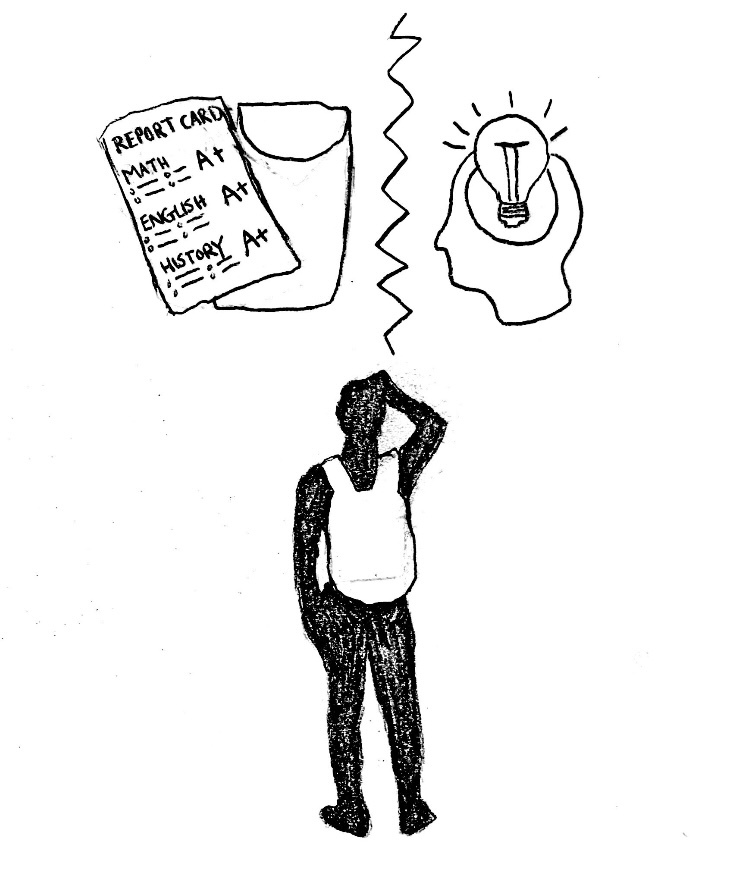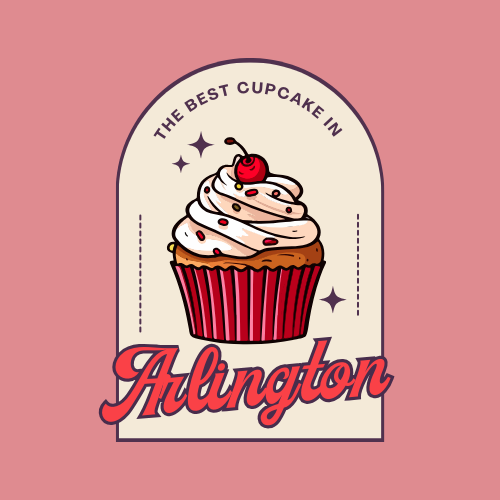GPA ≠ Intelligence
Students value grades over understanding of content, but this is encouraged by the education system.
Some students have trouble deciding between good grades or actual understanding.
What does it mean to be a good student? If you ask most parents, they would say it equates to steadfast focus and straight As. The answer is the same for many teachers. They want the high test scores and the long essays with perfect grammar. Some teachers try their best to get creative, but GPA is always omnipotent. Something seems to be left out from the equation. It is one thing to get a perfect score and then again a whole other to understand the topic at hand.
In a time when every resource is at the tip of our fingers, it seems the most simple thing in the world to look up something you don’t know, especially in our current virtual environment. It is an amazing privilege most of us have, but at the same time it is one of our greatest downfalls. When we look something up, we are given the answer without doing the work to get there. We are practically all guilty of this, myself included. When a topic is not interesting or even too difficult, the option of finding the answer with just a couple clicks on our keyboard is incredibly tempting. Curiosity is the beginning of knowledge, it is the lust for it. Curiosity is what drives research and from that we learn in depth about topics. It forces us to dig deeper than a surface-level answer, so to get the answer without that is to miss the whole point.
The problem is that this is too easy to do for most of our classes. With the structure of the average test, the answers are clear cut and available to us online. With the workload students have and all the stressors of the life of a teen, such as sports or clubs or family, sometimes we just cannot bring ourselves to care enough about learning the right way to do the pythagorean theorem or what year Andrew Jackson became president. When we cheat, though, we are told we are lazy. This is sometimes accurate, but it is not just the students’ fault. Expectations are high, and it is drilled in every student’s head that an A is necessary to succeed. Sometimes it is impossible to get that A just from studying when you have seven classes and other things to take care of, such as your family. It seems only natural to resort to whatever means necessary to have the future most of us desire.
With cheating, of course, comes the lack of understanding. Facts are not soaked in, and nothing is remembered after the test. If I just memorize this information, I’ll pass the test. Memorize, memorize, memorize. Cramming the night before is something most of us are familiar with, a study by Indiana University of Pennsylvania found that 99 percent of students admit to it because of how swamped with work they are. It may work in the short-term, but cramming almost always ends in complete loss of all the information soon afterwards. An article published by Stanford University said, “The majority of the information gained through cramming sessions ends up being forgotten not just over a period of time but even during the actual test itself.” What better way to demonstrate the ineffectiveness of our current scholastic system than this?
This is a problem that is difficult to get to the root of. It is not something as simple as blaming teachers. America as a whole values numbers. It is not just in GPAs, but we can see it in who has the most recognition in our country. Famous people inspire us to aim for more cars, more houses, more everything. It is important to question the value of things over the quantity. The busy-work we get in classes is not adding anything to our learning experiences except boredom, though we have to play the game if we want to get anywhere.
I used to think there was only one path to having a “good” life. Get straight A’s, get into college and then my life will be figured out for me. I am not alone in this, the concept did not come out of thin air. It came from a constant pressure. There was always this big cloud hanging over me that threatened to let loose a storm at any moment if I took one wrong move. The system is competitive, and I needed to be the best. Students are pitted against each other, the college application process being the most obvious example. You have to fight to get that good grade, because you are being compared to everyone else. If you only focus on what you care about you will not be as well-rounded as the others, and colleges will accept them over you. I still struggle with this mindset, and have to remind myself at times that it is wrong. That it is okay to take a break, not only okay but necessary.
I cannot go without saying that there are many teachers who strive to create warm environments for their students and genuinely care that the content they are teaching is getting through. Change has to start somewhere, and to these teachers we should be grateful. Most still have to abide by school and/or state standards and rules, which means standardized testing and certain materials that must be taught. There is no getting around this. But to be invested in the teaching, to create assignments that force the students to communicate with each other and question the world around them, that is the key to forming a better education system. As students, our job is to try our best to stay above water and to follow our passions. Do not let society fool you, there is not one correct path or even two. There are countless opportunities and different ways to get to them, so do what you love and try to stay as balanced as possible. Everyone is just as confused as you are.













